WHAT’S THE RIGHT HEARING AID FOR YOU?
We understand that the value of healthy hearing goes far beyond mere communication. Our Audiology Department at Raleigh Capitol Ear, Nose, Throat and Allergy has enabled our patients to hear their child’s lines in the school play, participate in conversations at busy restaurants, and reconnect with the world in a way that is personal and meaningful.
We specialize in hearing aids at all of our locations: Raleigh, Garner, Cary, Wake Forest and Brier Creek. We offer comprehensive rehabilitation services to our hearing-impaired patients who cannot be treated for their hearing loss surgically or medically. Our audiologists provide unparalleled hearing aid service for both children and adults. Not only do we provide comprehensive hearing evaluations, but we also strive to provide these professional services at a reasonable cost to our patients.
Best Hearing Aids in Raleigh by Professional Audiologists
Why should you receive hearing aid services from an ENT practice instead of a large, commercial retailer? Consider these facts:
- There is a difference between an audiologist and a hearing aid dispenser.
Both types of professionals can evaluate your hearing and fit hearing aids, but their training varies significantly. Audiologists must have a doctoral or master’s degree, pass national and state exams, and have more than 1800 hours of clinical training before they graduate. Hearing Instrument Specialists, or “dispensers” generally have from six months to two years of supervised training and, in some states, must pass a licensing test. All of our providers who specialize in hearing aids are licensed audiologists. - A hearing aid dispenser in Raleigh is typically not affiliated with an ear, nose, and throat doctor.
A physician who specializes in ear, nose, and throat treatment may discover a structural or additional issue that could be causing hearing problems. - A doctoral degree in Audiology is not the same as the MD degree that physicians have.
A doctoral degree in Audiology (Au.D.) is a clinical doctorate degree from a university. This is comparable to an O.D. (Doctor of Optometry) or a PhD degree from a university. The degree a doctor possesses is an MD from a university medical school.
A licensed audiologist will determine which hearing aids are most appropriate for the type and degree of your hearing impairment. Not all hearing aids are appropriate for every hearing loss. During the consultation visit, we encourage you to ask questions. We want you to feel comfortable with your new hearing instrument. When needed, we will take an impression of your ear so the ear mold can be ordered.
Raleigh Capitol Ear, Nose, Throat and Allergy is pleased to offer bone anchored hearing aids for patients as yet another option for the rehabilitation of hearing loss. Ask your audiologist and/or physician at your next visit to see if you’re a candidate.
Avoid over-the-counter hearing aids
The FDA has yet to approve guidelines for over-the-counter hearing aids, and any over-the-counter hearing aid claiming to be FDA approved is misleading. Devices that are improperly fit may not work or can even damage your hearing. Read more about why you should avoid over-the-counter hearings aids before you make any decisions.
HEARING AIDS: YOUR OPTIONS IN WEST RALEIGH, BRIER CREEK, WAKE FOREST, CARY, GARNER, & HOLLY SPRINGS.
- A wide range of hearing aid technology
- Hearing aid maintenance, including repairs, cleanings, and seasonal discounts on hearing aid supplies battery club savings and loaner hearing aids
- Bone Anchored Hearing Aid (BAHA)
- Assistive Listening Devices (ALDs)
Following are additional helpful links.
Hearing Aids Hub: Everything You Need To Know
Hearing Loss

What You’ll Learn
“Excuse me, could you say that again?” If you find yourself asking this question frequently, it might be a sign that you’re experiencing hearing loss. In this guide, we’ll walk you through how to recognize the need for a hearing test. Plus, we’ll provide practical advice and effective strategies for managing hearing loss.
Why an Audiologist?

What You’ll Learn
Are you under the impression that all hearing aid professionals are pretty much the same? This couldn’t be further from the truth. Audiologists bring a unique set of skills and qualifications to the table. In this discussion, we’ll explore the distinctions between audiologists and hearing aid specialists, as well as guide you in selecting the ideal hearing aid tailored to your needs.
Hearing Aids

What You’ll Learn
Leave behind the frustrating whistles and discomfort associated with older hearing aids. The latest models are equipped with cutting-edge technology designed to support your hearing needs seamlessly. We’ll give you a tour of how hearing aids work and explore the latest advancements that improve your experience.


